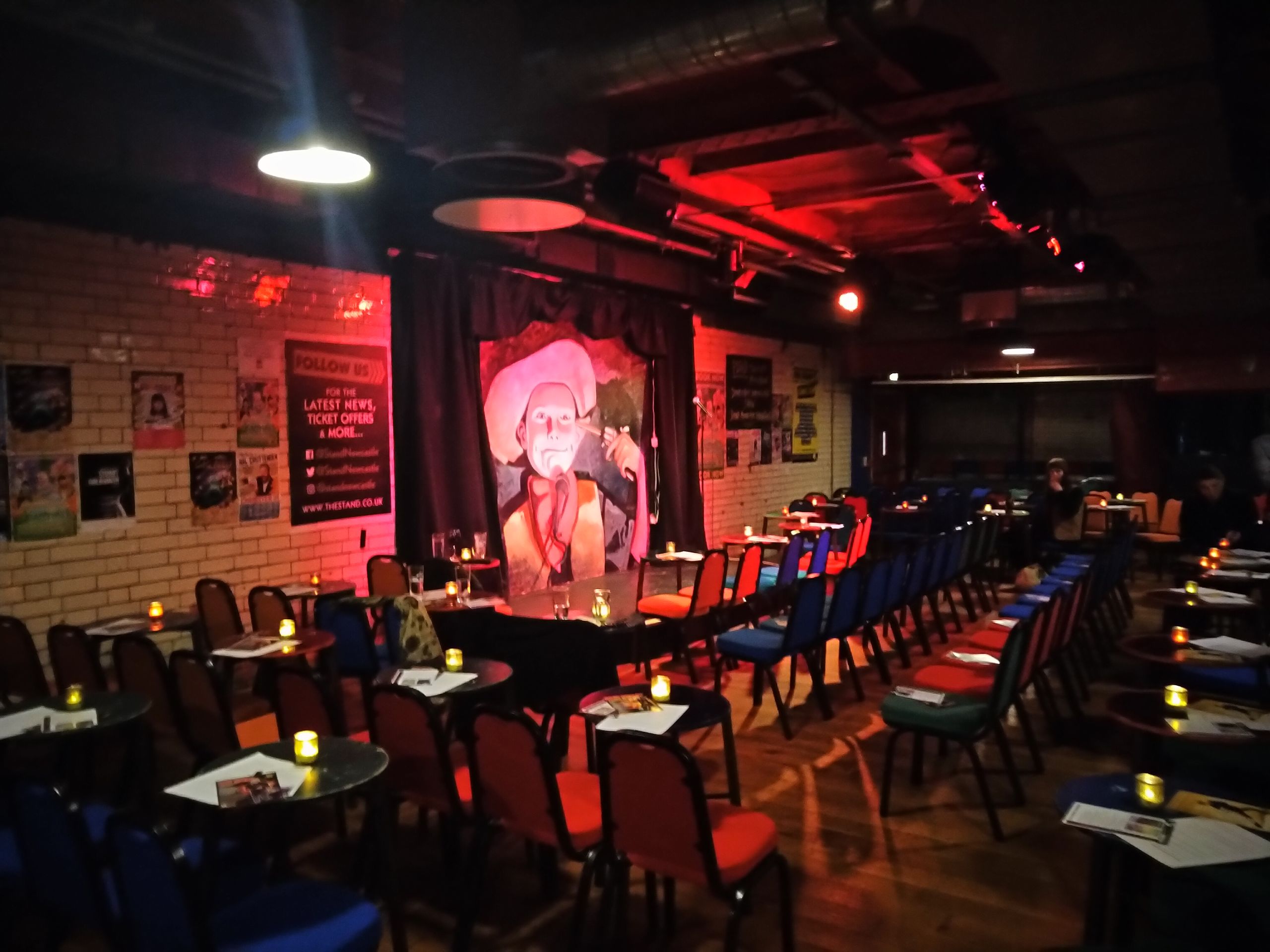Starting out in stand-up
From inescapable nerves to avoiding a gruesome on-stage death, Mark Warren examines the challenges faced by first-time comedians in the North East
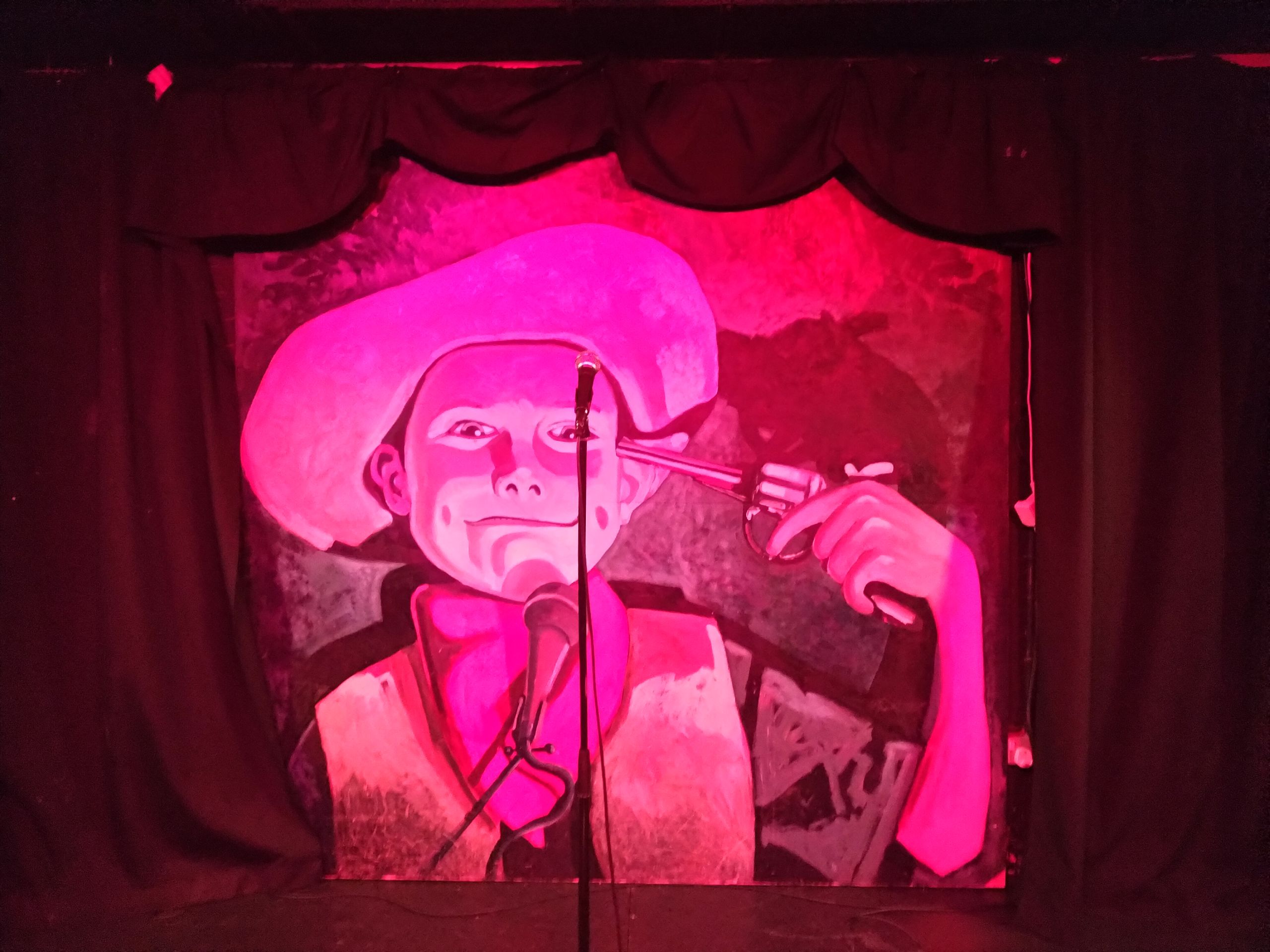
The green room at the Stand Comedy Club in Newcastle is, to put it lightly, fairly cosy.
Naturally, this means that for a show like Red Raw, where the running order features short sets by around ten different comedians, the room can quite easily begin to feel a bit crowded. Especially when it offers the acts a bit of shelter from the quickly filling comedy club beyond the curtain covering its door.
The comedians gathered in the green room for this show are a mixed bunch. Some are locals, others are from further afield. Some have been in the business for a number of years. Some it's fair to say, have not.
One of these people is Nevil Tynemouth, the middle aged director of a sales training company based in Houghton-Le-Spring.
"It's a strange mix actually," he says of his feelings going into his first ever stand-up gig, "it's a lot busier in there than I expected tonight, which is probably not a bad thing, because a big crowd's going to be good for a bit of a vibe and a bit of a buzz."
He continues: "Obviously, nerves, yes, naturally, but also kind of a bit of an excitement, because I love stuff that challenges you and makes you step outside of your comfort zone. I think this is going to push me outside my comfort zone and I'm going to have some fun with it."
Another act waiting for his first gig is Cristian Sclifos, a Moldovan student from Sunderland University. "The material I think isn't the hardest thing, maybe the nerves, but then I think you only feel it when you're on stage.", he says, adding: "After about the first two minutes, I expect just to get over it, hopefully."
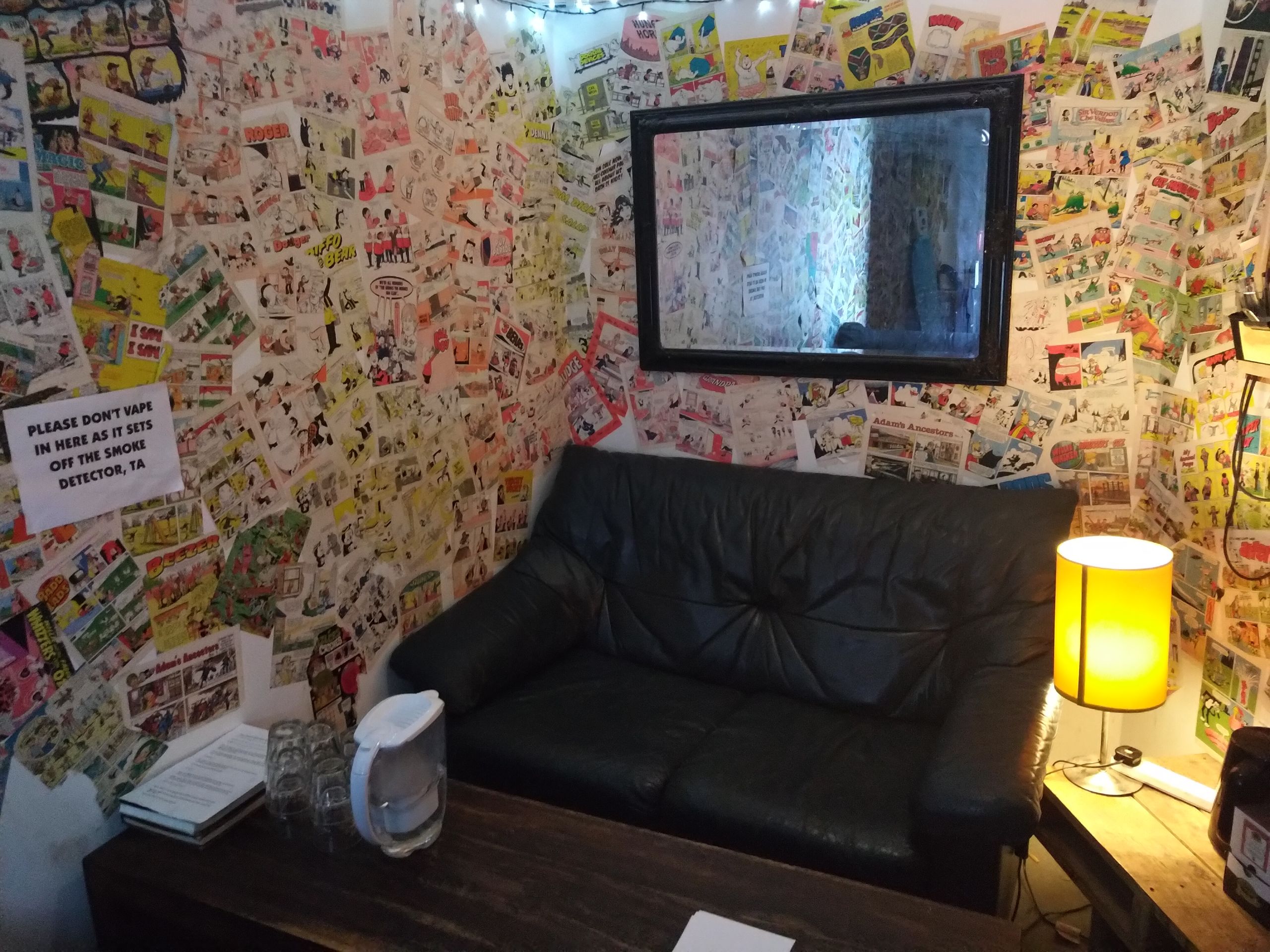
As comedian Joby Mageean alludes to in the clip above, stand-up comedy is an interesting profession to end up in because there’s no entrance exam, only the practical challenge of getting out there in front of an audience and making people laugh. Watching how effortless established comedians can make it look, this task might not appear that difficult.
After all, pretty much everyone on earth has made up and told a joke at some point, and many of those people have found themselves sitting in an audience or in front of the television, thinking four immortal words:
I could do that.
It’s safe to assume that every act huddled in the Stand's green room this evening has had this epiphany at some point. For the likes of Nevil and Cristian, it occurred relatively recently, however, for some of the other acts they're about to share the stage with, the watershed moment happened many years ago.
For the evening's headline act, veteran North East comedian Si Beckwith, the decision was made just over seven years ago: "I'd written short stories, plays and other bits and bobs and I was drawn naturally to the funny. I always watched a lot of stand-up on TV, I then started going to a couple of open mic nights and I was just like, right, I need to give this a go."
Si distinctly remembers that first gig: "It was a room above a pub gig at Long Live Comedy. There was an audience of about five, I brought one of them. It went by in a blur, I think I did like five or six minutes. I remember taking half the day off work from a call centre, pretending to be ill so I could go and prep for this gig. I did it and got asked to come back a week later, then I just started doing it more and more."
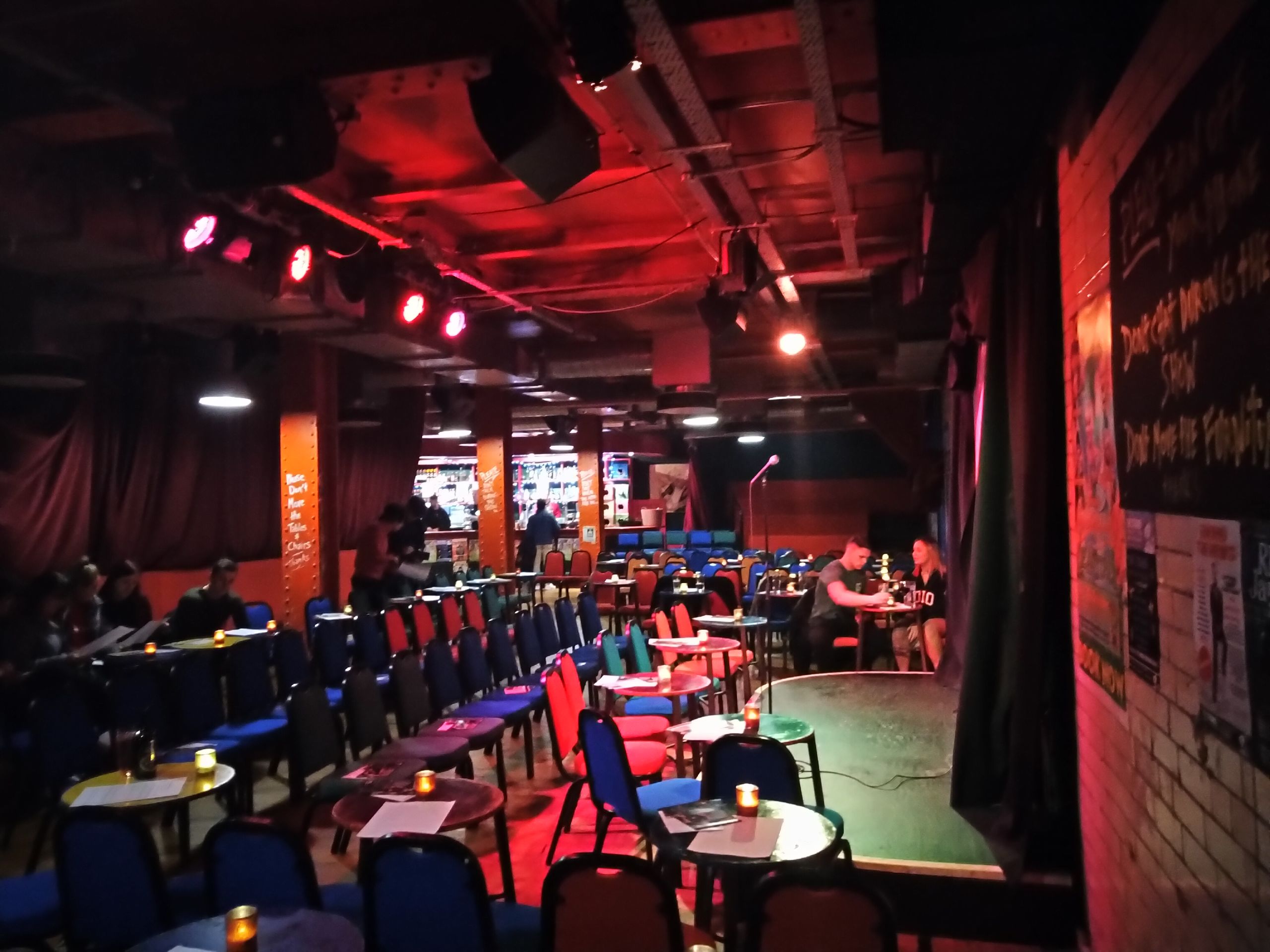
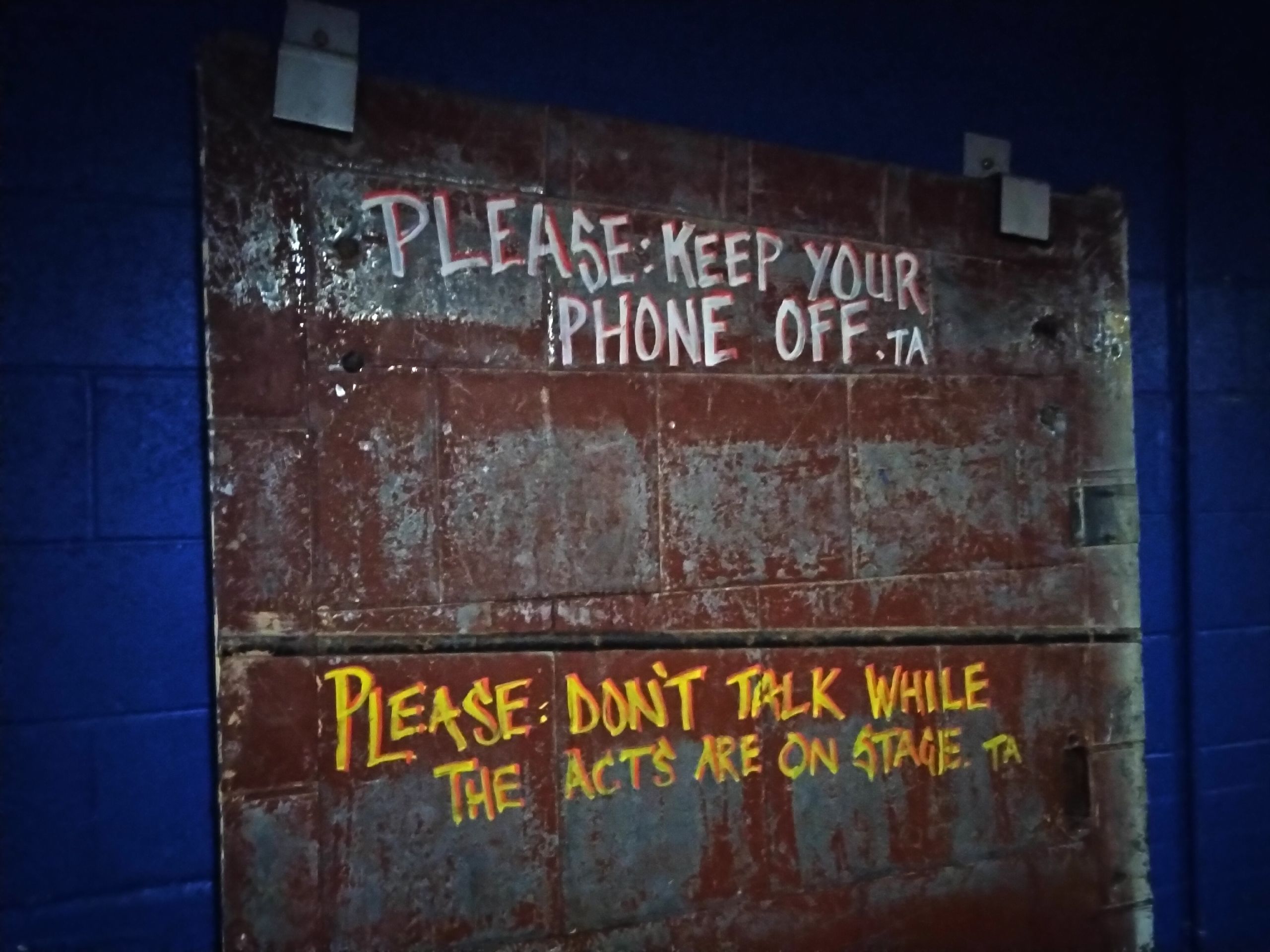
Two of the other comedians featured on the show are good friends, having met while performing at the Newcastle Stand’s Scottish cousins in Glasgow and Edinburgh. Ciara Jack, from Essex and Kuan-Wen Huang, from Taiwan, have both been performing regularly for around three or four years.
For Ciara, who cites Eddie Izzard and Dylan Moran as her main comedic influences, her first gig came in a graduate bar at the University of East Anglia: “It was in the corner, half the room were paying attention, half of them weren’t. I remember my opening gambit was, because the microphone was up too high and I’m quite a tall girl and I remember being like ‘Oh fuck, I look like Lemmy from Motorhead’ and I got a laugh. I remember the feeling walking home was unreal, like, it was kind of like the first time you get drunk, or get your first hangover.”
Kuan-Wen’s first gig was in Germany: “I was living in Berlin at that time, kind of going through a mid-life crisis and because I wasn’t working, I finally had the courage to try stand-up. So, I found an open mic night at a pub.”, adding: “The pub isn’t even there any more.”
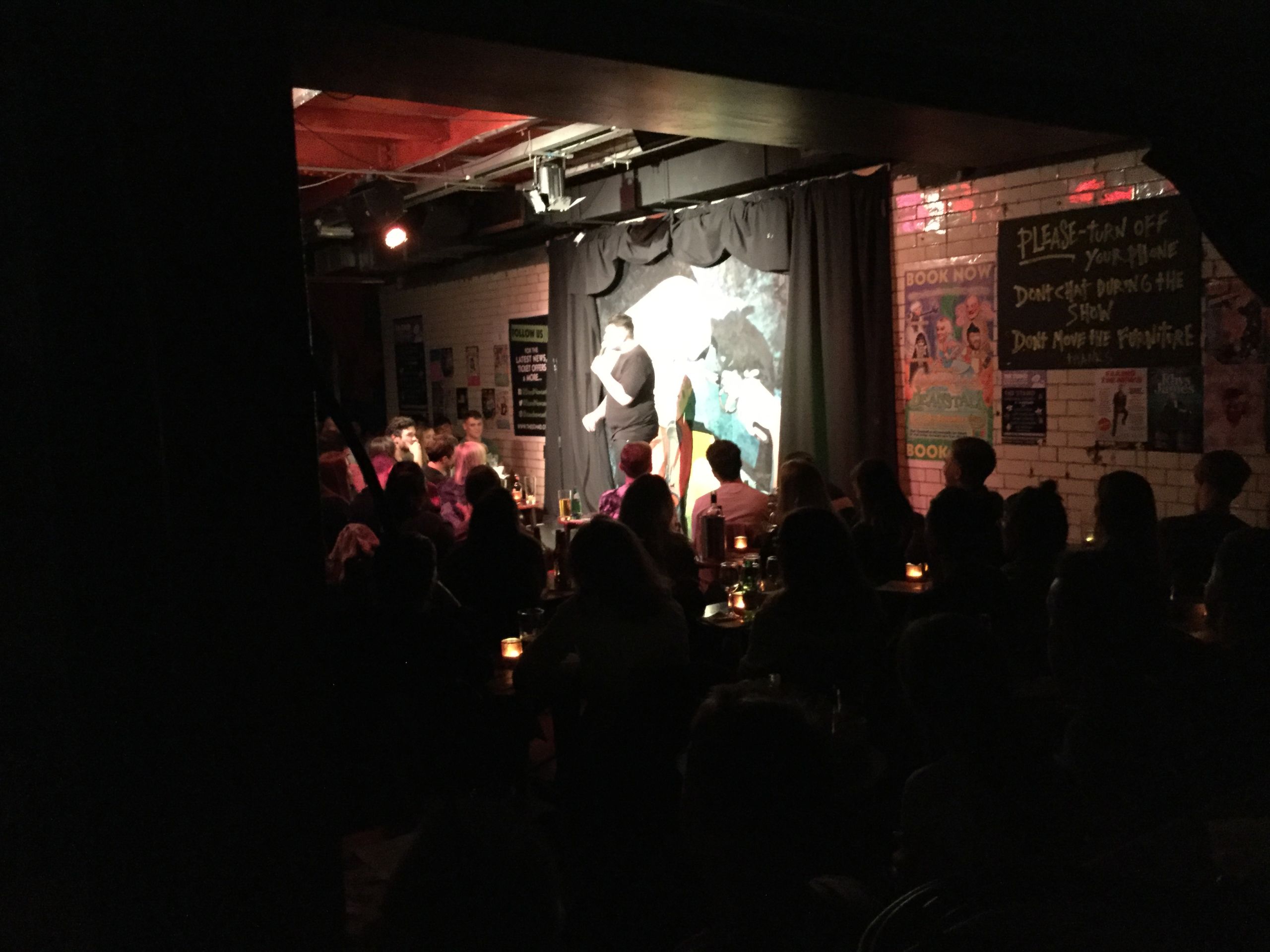
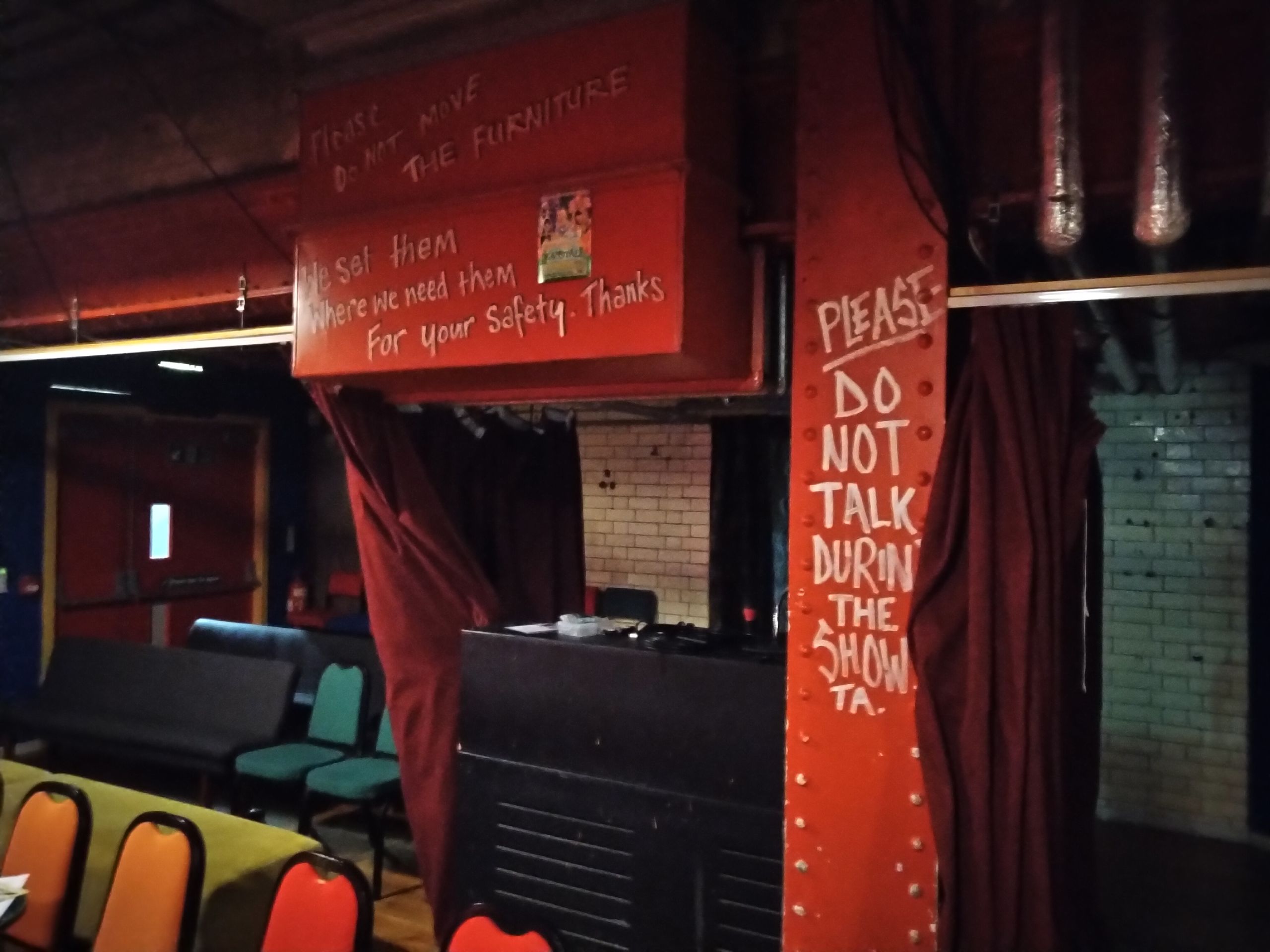
Pub gigs and open mic nights aren’t the only route into stand-up, as demonstrated by another of the evening’s acts, Estelle Anderson. Despite being only 16 years old, Estelle already has three years performing stand-up on and off under her belt, having completed a course on stand-up at drama school.
“I thought it would be a good way to meet cool people, I had no idea I would love it so much!”, she says, adding: “My advice to other new comedians would be to get as much stage time as possible, and not feel put off by the odd bad gig. There are always going to be gigs where it goes terribly, and people just don’t get it, but it’s important to remember that you’re not a bad comedian just because one person in the front row didn’t laugh at your favourite joke.”
Ciara echoes this sentiment: “Just do it, honestly. Like, the hardest bit will be that first step on stage, that will feel like you’ve gone bungee jumping.” She adds that when you taken that first plunge, it’s worth recording and re-watching your performance: “Once you watch yourself back, you get more of an objective perspective on how the gig went and you can go ‘ooh, I won’t say that again’ or ‘I need to rephrase that’.”
Ciara advises that once you start to gig regularly: “People will come up to you and give you unsolicited advice, take it with a pinch of salt, you will often make your best moves in your career from just being brave, trying something new, talking to people.” She also emphasises the importance of avoiding comparing yourself to other comedians: “That’s one of the worst things, comparing yourself to others. Everyone says you shouldn’t do it and you know yourself that you shouldn’t do it, but it’s one of the things that can ruin a day.”
At the end of the show, many of the acts gather in the cosy little green room once more, congratulating each other on their sets. The tension that was present before the show is gone, replaced by the warm feeling of camaraderie among like-minded souls. There’s also a sense of life returning to normal. At the end of the day, no matter how well your set has gone, life will go on.
